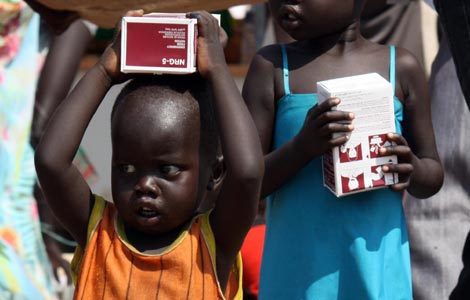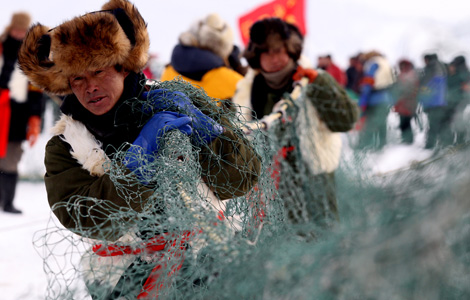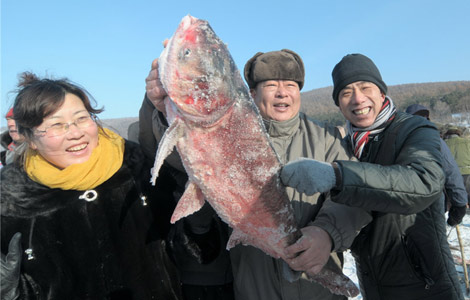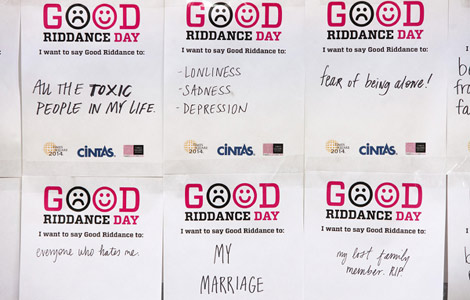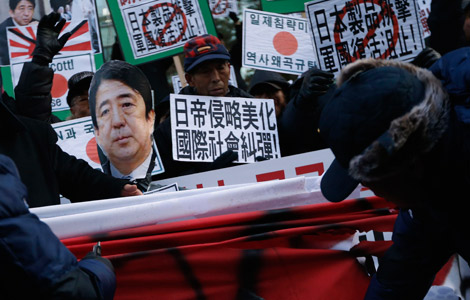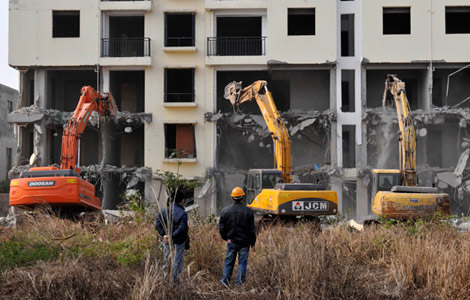
"FAIR AND EQUAL"
Indonesian officials say the new laws should prolong the life of the country's depleting tin reserves through sustainable mining. Critics counter that it's more about restricting supply to a narrow channel and raising prices to benefit vested business interests - a charge government ministers deny.
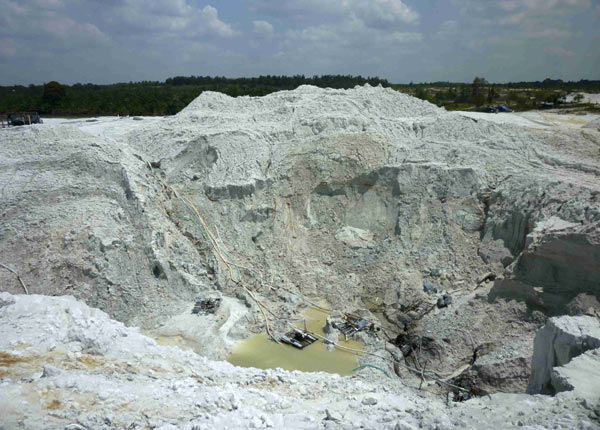 |
|
Illegal miners work in an open air pit tin mine on Bangka island September 24, 2013. [Photo/Agencies] |
The ICDX was founded by 11 palm oil and gold producers in 2010, and is headed by Megain Widjaja, the grandson of Eka Tjipta Widjaja, one of Indonesia's wealthiest oligarchs.
The family's conglomerate, Sinar Mas Group, has investments in palm oil, pulp and paper, banking, property and telecoms, and Forbes estimates the family is worth $7 billion. The group, which has no other tin interests, is one of six owners of the ICDX via PT Sinarmas Futures, according to a list the exchange provided to Reuters. The list names PT Swarna Abadi Perkasa, PT Interlink Data Services, PT Karya Duta Perkasa, PT Inti Kencana Mas and PT Logam Mulia Pratama as the other five shareholders.
"It's not true when critics say the regulation is only benefitting certain business people," said Trade Minister Wirjawan. "The regulation benefits every exporter and is fair and equal to everybody."
Earlier this year, Indonesia set purity rules on the amount of lead in tin and from next month will ban all unrefined metal exports. Tin smelters that can't meet the new purity rules are unable to export and, instead, have to feed larger smelters, upgrade their facilities, or not survive.
The sharp drop in Indonesian exports rippled through supply chains in the region, with smelters in Malaysia and Thailand reliant on Indonesian tin. Global electronics giants are also vulnerable to supply disruptions from Indonesia.
In Japan, which imports about 80 percent of its tin from Indonesia, some trading firms have boosted inventories until this month, but may then have to turn to LME warehouses. Stockpiles tracked by the LME dropped to 10,005 tonnes this week, almost a third below the levels before the new rule took effect at the end of August.
"For somewhere like Japan or Korea, Indonesia is absolutely critical and there's just not enough tin around from other sources to replace it," Peter Kettle at global industry group ITRI told Reuters in October.
WATERED DOWN
Indonesia, though, has a track record of watering down, or even reversing, populist measures, fuelling expectations that the authorities may yet prove not quite so tough.
In July, for example, the tin purity law was softened to allow higher lead content after an industry backlash. And policymakers are scrambling to ease overtly nationalistic resource rules, including a pending ban on mineral ore exports, and a royalty hike and export tax on coal.
"What happens in the short term, and what happens after the Indonesian election is another question," said a tin trader at a Western bank, who is not authorised to talk to the media.
"For the short term, everyone has to play along because you have to get the material. "But for the long term, no one knows - it's Indonesia."

